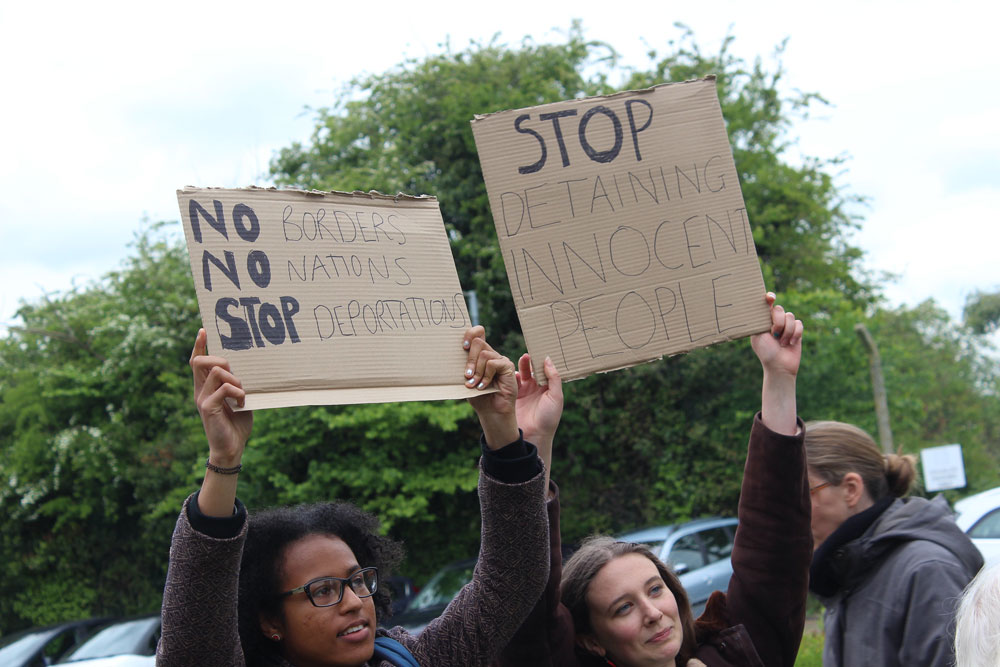
June 26, 2019; New York Times
Humanitarian aid is needed at the border. Everyone seems to be in agreement on this, even Republican lawmakers and President Trump. But whether that apparent and appalling need can break the gridlock of the US House and Senate remains to be seen.
Both the Senate and the House of Representatives have passed bills calling for about $4.6 billion in aid to the border to help deal with the thousands of families stuck in dirty, hot, cramped camps with no water, soap, translators, or medical attention. But there are key differences in the bills from each chamber, representing their different partisan majorities.
Helpfully, the House Appropriations Committee published a short summary of what’s different between HR 3401 and the Senate bill. They boil it down to this:
- House Democrats do not want to send money that isn’t specifically designated as humanitarian aid—what Republicans with nonprofit experience might characterize as “overhead.” The Senate bill includes money for Immigrations & Customs Enforcement salaries and the Department of Defense; the House bill does not.
- The House stipulates that proper medical care, translation services, and other aid be provided, as well as safety training for personnel. Their bill also protects state department aid to Central American countries from being raided to fund this bill, and allocated $200 million for an integrated, multi-agency processing pilot, based on a proposal from United Nations High Commissioner for Refugees. The Senate bill does not include these restrictions.
The House bill passed 230-195 along partisan lines; the Senate bill passed 84-8. Four House Democrats rejected their party’s bill: Representatives Alexandria Ocasio-Cortez of New York, Ilhan Omar of Minnesota, Ayanna Pressley of Massachusetts, and Rashida Tlaib of Michigan.
Sign up for our free newsletters
Subscribe to NPQ's newsletters to have our top stories delivered directly to your inbox.
By signing up, you agree to our privacy policy and terms of use, and to receive messages from NPQ and our partners.
Representative Ocasio-Cortez told reporters that any bill including money for immigration enforcement was a “nonstarter.” Representative Omar said, “We’re spending $155 million with the marshals. That is in conflict with my morality on how funding should be allocated. We would love for all of the money and assistance to go to HHS and that really has not been on the table.”
The ACLU seemed to agree, tweeting, “With ICE and CBP out of control, we cannot allow even more of our taxpayer money to go toward Homeland Security. Call Congress NOW.”
RAICES Texas, an immigration advocacy nonprofit, added, “We welcome more oversight, doctors, & scrutiny on rogue agencies. But let’s keep pushing: children should NEVER be locked up. We spend BILLIONS on a completely failed system. It needs to be thrown out. We need to restart by building bridges into our community, not cages or walls.”
House leader Nancy Pelosi and others have begun to talk about reaching a compromise between the two bills, but no conversations have yet been scheduled. Julie Hirschfeld Davis and Emily Cochrane of the New York Times said that Pelosi argued passing the bill “would send a signal to the world that Democrats want to help suffering children at the border.” Others have expressed impatience with the logjam.
Private efforts have raised millions of dollars for aid to migrants at the border, but the vast majority of it is for legal aid to help represent asylum seekers in court. Some have argued the best thing concerned citizens can do is post bail.—Erin Rubin












